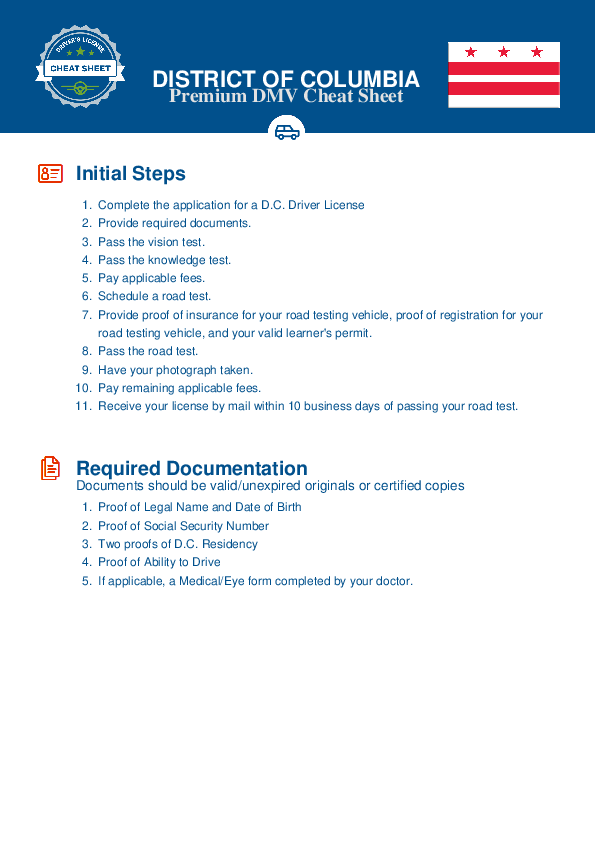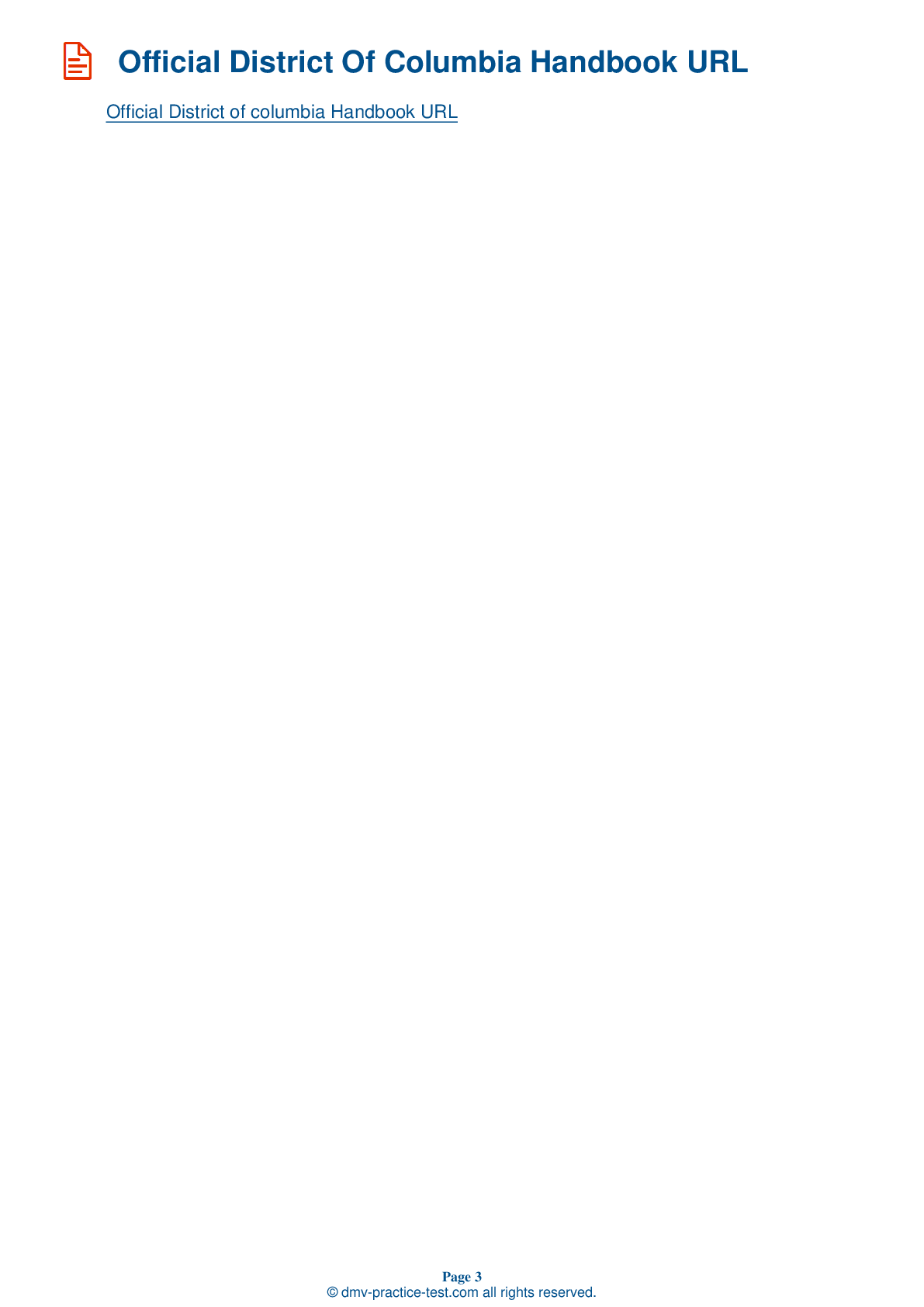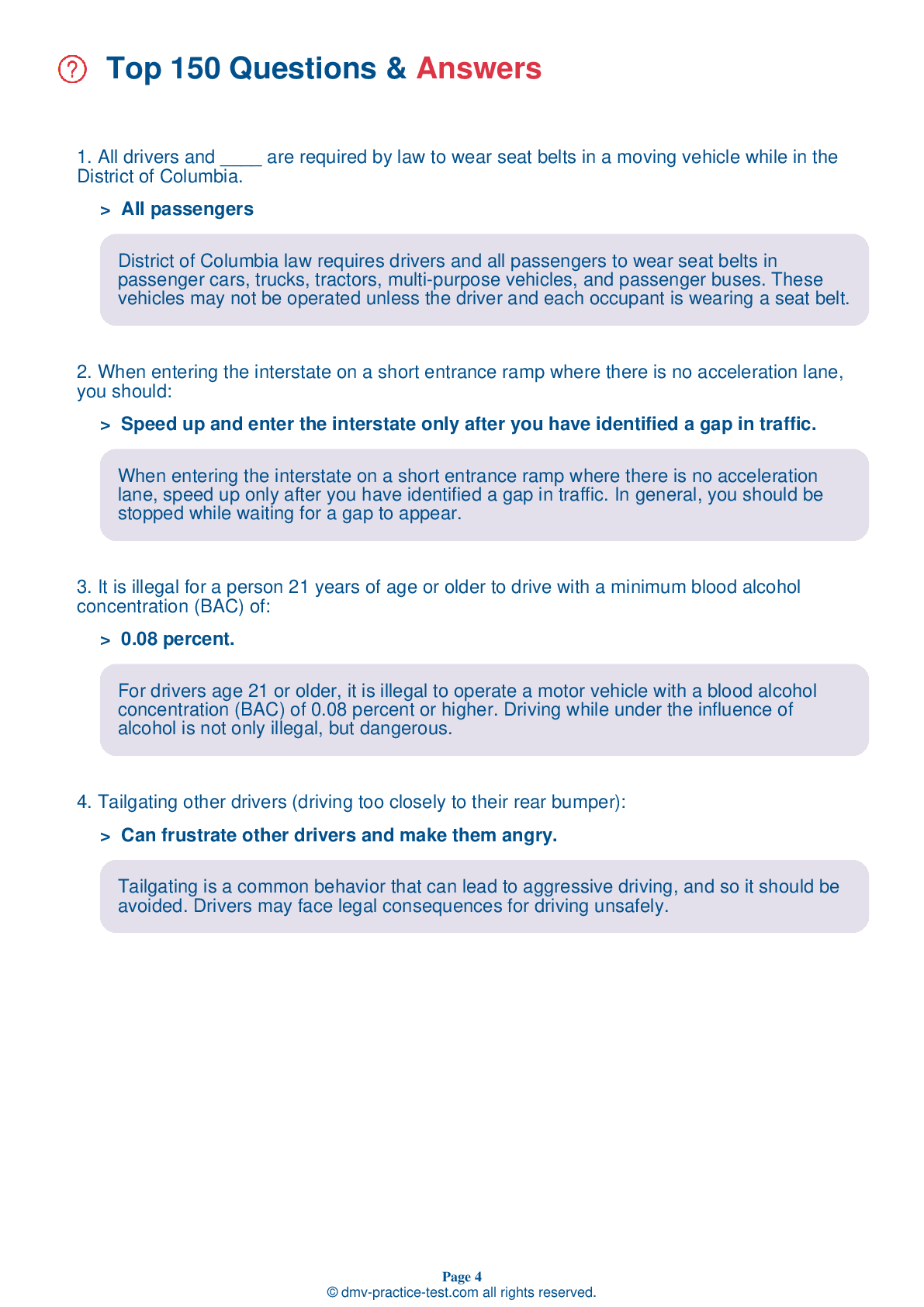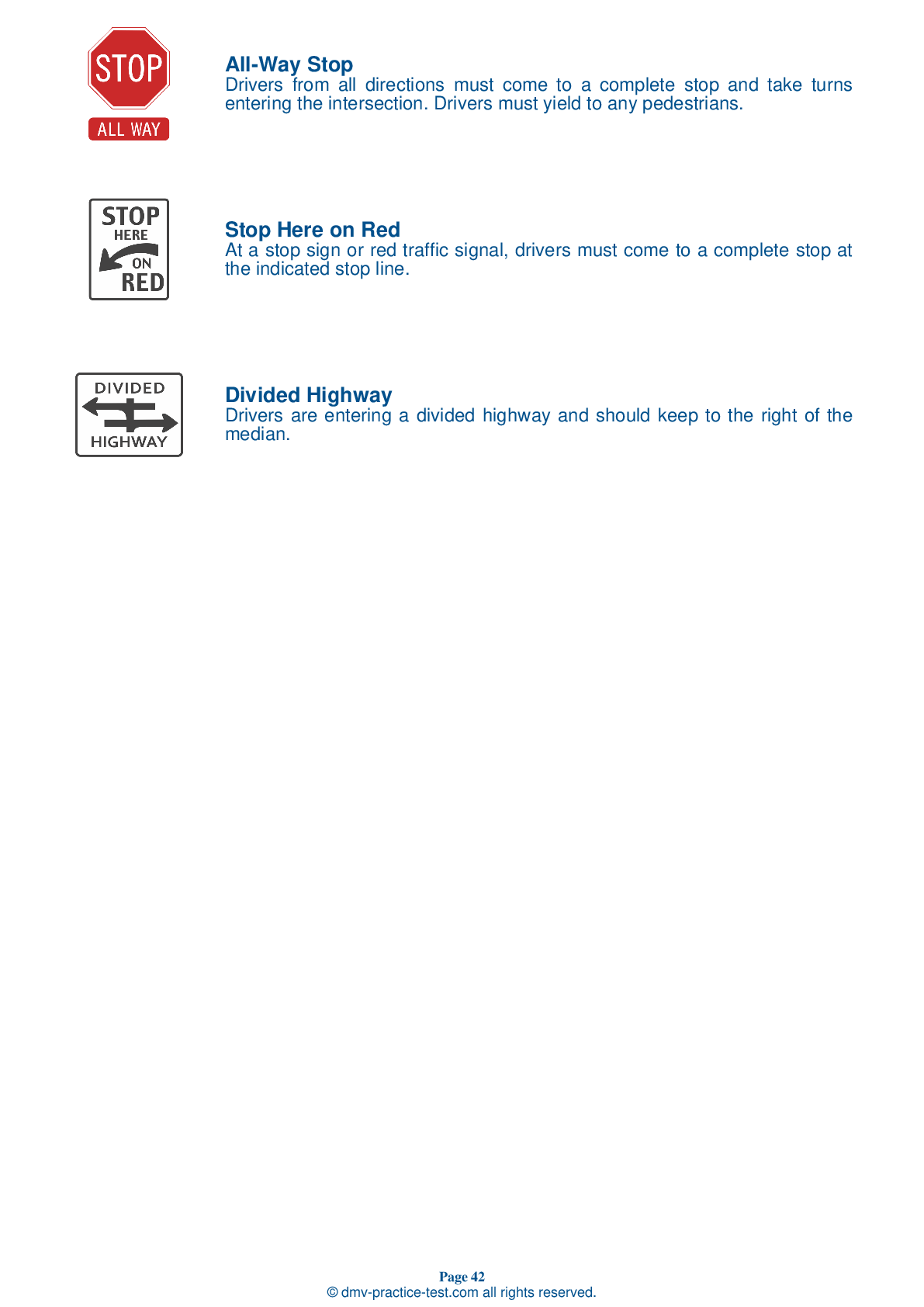FREE District Of Columbia DMV Practice Test #7 Page 3 of 3
This set of District Of Columbia DMV practise tests was been updated for January 2025. It includes questions based on the District Of Columbia Driver Handbook's most significant traffic signs and laws for 2025. Use actual questions that are very similar (often identical!) to the DMV driving permit test and driver's licence exam to study for the DMV driving permit test and driver's licence exam.
On the practise exam, each question gets a tip and explanation to help you remember the concepts. The written component of the official DMV test will include questions about traffic rules, traffic signs, and driving statutes, as well as information from the Driver Handbook.
To achieve the required passing grade, you must correctly answer 20 of the 25 questions. Take our DMV practise exam to help you prepare for your District Of Columbia instruction permit or driver's licence.
The DMV exam is available in several languages.
Using any form of testing help will result in an automatic fail, and the DMV may take further action against your driver's licence, so avoid it.



